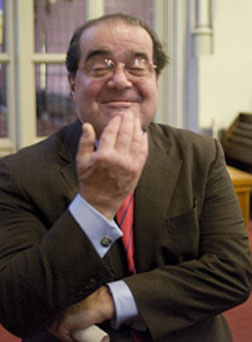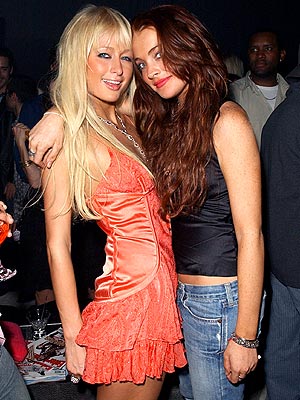
Apparently he was following a little too closely to the car in front of him:
The accident happened just before 9 a.m. on what was to be a big day for the jurist: The nation’s highest court was hearing arguments in the massive Wal-Mart gender discrimination case. According to U.S. Park Police, Scalia was driving south on the parkway approaching Roosevelt Bridge when he rear-ended a car that had stopped for traffic, triggering a chain reaction. Brooke Salkoff saw it all go down. The former NBC reporter told us she was just behind Scalia’s vehicle, a shiny black BMW in the left lane. “It slammed into the car in front of his, which pushed the other two forward,” and caused them all to skew into the right lane, she said. Now, just as when you're in a fancy restaurant and everyone turns their head to see who walked in, it’s only natural that everyone driving along a major commuter route out of McLean would want to rubberneck at something like this. Salkoff did, as her car inched past, and was rewarded by a surprising glimpse of a familiar face. Scalia was in a dress shirt, no jacket, with an unknotted bowtie hanging around his neck — and, interestingly enough, turned out to be driving himself. The car in front of his appeared pretty badly banged up, the other two less so. Scalia made it to the bench, though, in time for arguments at 10 a.m., a court spokeswoman said. No doubt in Salkoff’s mind that Scalia was at fault, as the driver who failed to brake. “I think that’s an originalist interpretation,” she quipped. Indeed, said the Park Police’s Sgt. David Schlosser, the justice got a ticket for following too closely. Fine: $70, plus a $20 special assessment, or, said Schlosser, “he can contest it in court.”
I volunteer to represent him for free.







